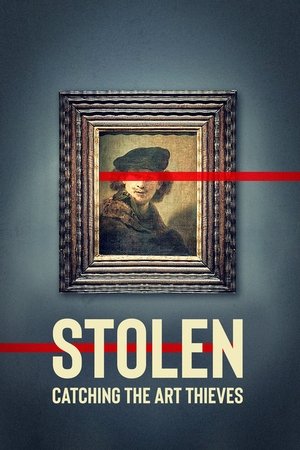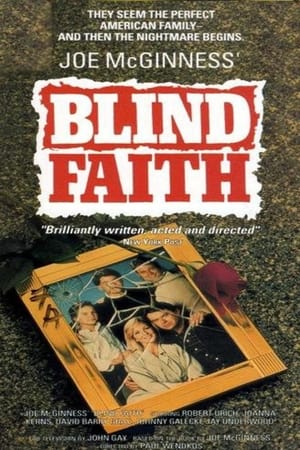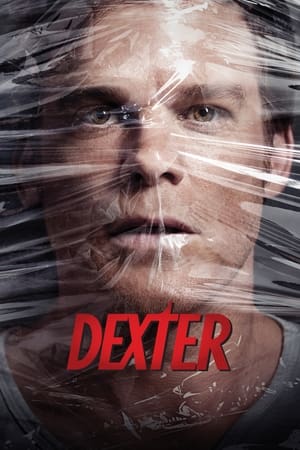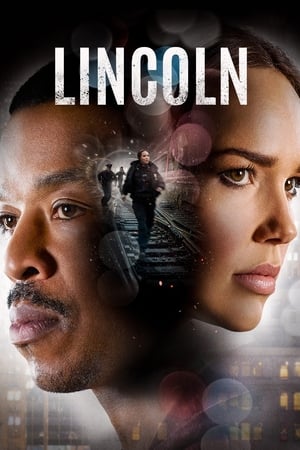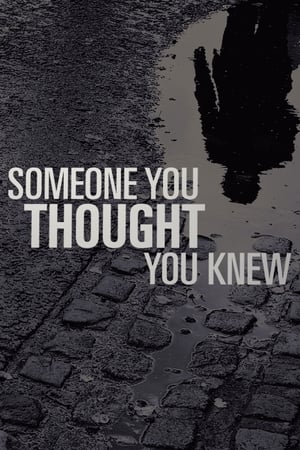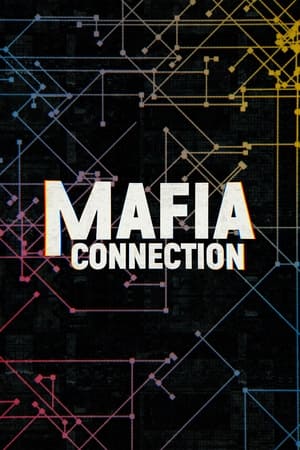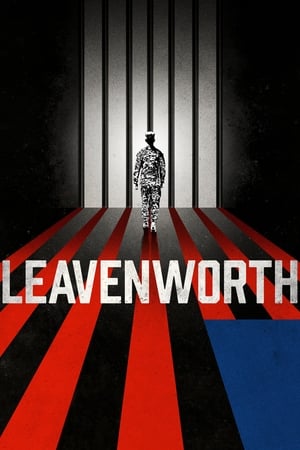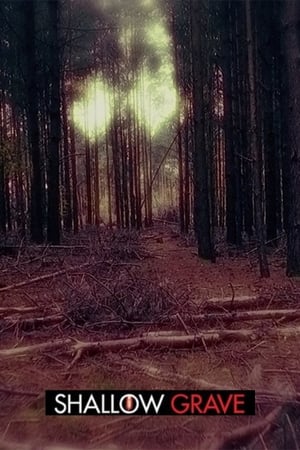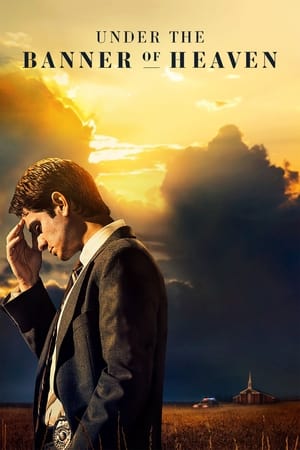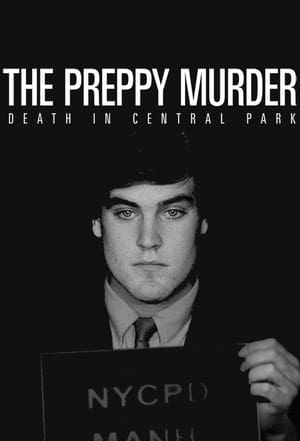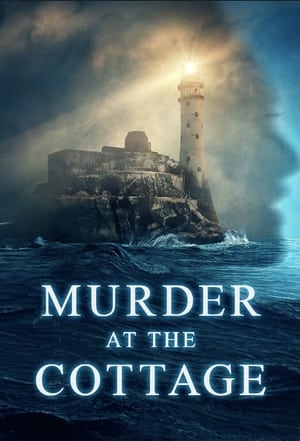Overview
A journalist races to learn the truth when human remains are found in the home of self-proclaimed Satanist "Pazuzu".
Reviews
**_A powerful examination of mental illness, murder, a broken judicial system, a sensationalist media, and the rotten, apathetic core of white picket fence America (thoughts on the first season)_**
>_I despise the human race. People are ugly and pointless creatures. I sit back and I watch them and they anger me. I should get a medal for murdering these stupid people. Maybe when I'm dead, the gods of chaos shall grant me power._
- John Alexander Lawson aka. Pazuzu Illah Algarad; Letter to his mother from Central Prison, North Carolina (October 26, 2015)
>_The news media goes into overd__rive with the gore and the constant commentary about evil and Satan and all the rest. But that's just entertainment. The gruesome details don't begin to answer the real questions – how can law enforcement in our community allow something like this to go on, how did_ we _let this go on? Clemmons is a wonderful place to grow up; you're surrounded by the church, you're surrounded by family, everyone's a conservative Christian, everybody votes the same way, they eat the same stuff. But while they go about their business, these ugly things, these tough things are bubbling under the surface. And a guy like Pazuzu Algarad, he's a local myth, maybe a local joke, but nobody really pays attention to him, nobody realises how serious it is. Until it's too late._
- Chad Nance; Co-Founder and Editor-in-Chief of _Camel City Dispatch_, a local news blog in Winston-Salem, North Carolina
In William Peter Blatty's 1971 novel _The Exorcist_, and William Friedkin's 1973 filmic adaptation, a young girl is possessed by a demon named Pazuzu, a figure from the Sumerian, Akkadian, Assyrian, and Babylonian mythologies of Ancient Mesopotamia. The king of the demons of the wind, although Pazuzu was considered evil, he was regarded as apotropaic, insofar as he would stand against the goddess Lamashtu, who ate new-borns. Additionally, his appearance was said to be so horrific that it would drive away other lesser demons. Fast-forward a few thousand years, and travel a few thousand miles to Clemmons, North Carolina where Pazuzu Illah Algarad (born John Alexander Lawson) is a mentally-ill young man who worships Satan, sacrifices animals, and claims he can control the weather. And he murdered at least three people.
Although _The Devil You Know_, which aired on Vice, is an excellent overview of the Pazuzu Algarad case, its real focus is the efforts of local journalist Chad Nance to get beyond the sensationalist media headlines of cannibalism, witchcraft, filed teeth, and forked tongues and get to the issues which not only gave rise to someone like Pazuzu, but which allowed him to operate with relative impunity despite law enforcement knowing for at least five years that he was involved with murder. Through Nance, the show branches off to examine issues such as addiction, law enforcement, societal apathy, and the ease with which directionless and marginalised young people can drift into potentially dangerous situations in the hope of finding somewhere they can belong. _Devil You Know_ paints a vivid, compelling, and often heart-breaking picture of a community and way-of-life that appears idyllic, but which is rotten at the core and fundamentally broken in so many ways.
Unlike a lot of cases examined in multi-episode docu-series, the facts behind the Pazuzu Algarad case are fairly straight-forward and not really in dispute. John Alexander Lawson was born in San Francisco in August 1978, but in 1980 his parents, Timothy and Cynthia, relocated to Clemmons, a predominantly conservative Christian suburb of Winston-Salem in Forsyth County, North Carolina. Divorced in 1986, Timothy returned to California, but Cynthia and John remained in NC. Cynthia was known to like the company of men, particularly bikers, and Pazuzu would later say he first learned about sex by watching his mother entertain a local biker gang. In 1990, Cynthia married a man named Johnny James and the trio moved into No.2749 Knob Hill Drive. John despised his mother's second husband, to the point that when Johnny would return from work, John would lock himself in his bedroom and refuse to come out. Things got so bad that in 1991, Cynthia and Johnny sent John for professional help.
Accounts differ as to what happened next, with some saying John was sectioned until Cynthia and Johnny could no longer afford to pay for his treatment, whilst others say he was only merely sent for counselling. Whatever the case, within a few months, John was back home. Meanwhile, he was bullied relentlessly; constantly smelling of faeces, he was given the nickname "Turd Boy". Over the next few years, he had several run-ins with police for things such as public intoxication and fighting, and started to become interested in a kind of clichéd Satanism, that had little to do with actual Satanism (which is primarily a non-theistic belief system). Having unsuccessfully repeated ninth grade twice, John dropped out of school altogether when he was 17. With things at home still untenable, Cynthia asked Johnny to leave, hoping that John's behaviour might improve without Johnny around. Johnny warned her it was a bad idea, saying she'd let John walk all over her and things would get worse. Upon leaving, he was quickly proven correct.
Living almost entirely off Cynthia, who was now working two jobs, John was soon on the way to alcohol and drug addiction, as he slowly turned the house into a rule-free party destination for his friends. Modelling his look on Drexel, the dreadlocked character played by Gary Oldman in Tony Scott's _True Romance_ (1993), and basing his persona on Charles Manson, Anton LaVey, and Alistair Crowley, John started to sell drugs and openly worship Satan, and in 2002, he legally changed his name to Pazuzu Illah Algarad. He filed his teeth to sharp points and covered his body (including his face) in occult tattoos, although reports that he split his tongue were inaccurate. He stopped bathing and brushing his teeth, claimed to know black magic, said he could control the weather, and began to gather around him a group of "followers", mainly young women, whom he called his "fiancés". As time went on, the activities at No.2749 became more extreme – orgies were a regular occurrence; Pazuzu and his friends would often cut one another and drink each other's blood; animal sacrifices became common; and although Cynthia was still living there, people no longer used the toilet to relieve themselves, simply urinating or defecating wherever they stood.
In 2011, Pazuzu was convicted of misdemeanour assault for choking Cynthia, and in a separate incident, Amber Burch, his main "fiancé", was accused of punching her, although Cynthia refused to press charges. A year prior, Pazuzu had been arrested in connection with the murder of Joseph Chandler (30), who was found dead by the Yadkin River, having been shot several times in the head. Pazuzu was sent for psychiatric evaluation and was diagnosed with schizotypal personality disorder and agoraphobia, but was found competent. His associate, Nicholas Rizzi, was convicted of involuntary manslaughter, whilst Pazuzu was charged with accessory after the fact and sentenced to probation. From 2009 onwards, police started receiving a steady string of tips claiming that there was a body buried in the backyard at No.2749. They visited the house in 2010, asking Pazuzu if the reports were true. When he said they weren't, the police left. So yeah, solid police work. In 2012, they obtained a search warrant for the property but found nothing.
However, the tips kept coming, and in October 2014, the Forsyth County Sheriff's Office returned, finding not one but two shallow graves in the backyard, each containing skeletal remains. Pazuzu and Burch (now his "wife") were charged with murder, whilst Krystal Matlock, one of his fiancés, was charged with accessory after the fact. The bodies belonged to Josh Wetzler (b. 1977) and Tommy Dean Welch (b. 1978), both of whom had been missing since 2009. It later emerged that one of the first tips received by police (one of the many they had ignored) was from Stacey Carter, Wetzler's wife, who had heard rumours that Josh had been killed and buried. In April 2015, No.2749 was deemed "unfit for human habitation" and demolished. In May, after attempting to commit suicide, Pazuzu was moved to Central Prison in Raleigh on a Safe Keeping Order. And this is roughly where the documentary begins.
Directed by Patricia Gillespie, the show features an impressive cross-section of interviewees, giving a broad overview of the case from a variety of perspectives. There's Chad Nance (co-founder and editor-in-chief of _Camel City Dispatch_ in Winston-Salem, North Carolina), Stacey Carter (Josh Wetzler's wife), Matt Flowers (John's friend before his transformation into Pazuzu), Nate Anderson (one of Pazuzu's "followers"), Jenna Woodring (Nate's girlfriend), Sheila Chandler (Joseph Chandler's mother), Michael Hewitt (reporter at the _Winston-Salem Journal_), Terina Billings (Pazuzu's neighbour and the first to report him to police), "Krazy Dave" Adams and Sylvia LeBeau (two of Pazuzu's followers), Chief Deputy Brad Stanley (Forsyth County Sheriff's Office), Sgt. Sean Reid (CSI, Forsyth County Sheriff's Office), Cadie Wagner-Davis (Amber Burch's childhood friend), Pam Walker (Director of Communications, North Carolina Department of Public Safety), Amanda Martin (First Amendment attorney), and Cynthia James (Pazuzu's mother).
The show states its intentions from the beginning, with Nance explaining that, for him, Pazuzu's story isn't about cannibalism or Satanism or animal sacrifices or orgies – it's about a broken mental healthcare system that allowed an ill young man to fall through the cracks, it's about an indifferent law enforcement agency that allowed him to act without repercussions for years, it's about a man (Matt Flowers) so disgusted by the actions of his best friend that he's driven to act, and it's about the tragedy of Josh Wetzler and the concomitant pain of Stacey Carter. In this sense, the first episode, "There's a Satanist in the Suburbs", goes into Wetzler's background to a far greater degree than Pazuzu's, which is unexpected – how many documentaries dealing with murder spend more time telling us about a victim than about the killer? Wetzler and Carter had planned to open a horse rehabilitation centre, into which they'd sunk their life savings. However, in 2007, the bank dramatically increased their repayments, they fell behind on the mortgage, and in 2008, they lost the farm and most of their money. As their relationship started to fall apart, Wetzler turned to selling weed and mushrooms to try to make ends meet. However, in 2009, after having some mushrooms sent to his house in the mail (a federal crime), he was arrested and convicted on a felony drug charge.
Nance uses this as a launching pad to examine some of the incongruities found under the surface of the Pazuzu case. Speaking of how Pazuzu got merely a few months' probation after participating in a murder, for example, Nance opines, "_the system is really just broken. You have Pazuzu and his posse committing crimes that seriously affect everyone around them, but they get just right back out on the streets. But non-violent crimes like having a bag of pot or mushrooms in your pocket? Those lead to felony convictions that fills up prison and totally ruin lives._" He argues that when one has a federal drug conviction, one loses all opportunities; Wetzler could never get another loan, his employability would diminish drastically, his status in the view of law enforcement becomes less important should something happen to him. He was a first-time felon with no previous charges of any kind, yet his drug bust essentially handed him a life-long Scarlet Letter and the stigmatisation that accompanies it.
Nance argues that in such situations, context should be everything, understanding why someone has done what they've done, yet in reality, context is seen as irrelevant. In the course of a few months, Wetzler went from being a reliable husband and father building a life for his family to someone who would occasionally disappear for weeks at a time, and it was this nomadic tendency which brought him into the orbit of Pazuzu, and ultimately led to his death. When Wetzler disappeared in July 2009, Stacey thought it was simply one of his normal disappearances, not reporting him missing until February 2010. When she did so, she learned that police had found his car abandoned only a few days after he'd disappeared, but they'd never told her. Had she known about the car, she'd have reported him missing sooner, reinforcing Nance's assertion that with a drug charge, you become less important in the eyes of law enforcement – he wasn't a husband and father who might be in danger, he was a drug dealer skipping town.
Aside from looking at the unnecessary tragedy that was Wetzler's murder, the show examines other issues that one might not expect from a documentary about a Satan-worshipping murderer. For example, the third episode, "Did the Devil or the Disorder Make Him Do It?", sees Nance delve into John Lawson's background, spending a lot of time on the fact that it was obvious from his early childhood that John had serious mental health problems, but he simply never got the help he needed, primarily because, Nance argues, he wasn't from a wealthy enough family. So whilst the show unequivocally condemns Pazuzu the man, so too does it have great compassion and sympathy for the child he once was.
Another major theme is addiction, with the show being remarkably open about Nate and Jenna's heroin addiction, showing them openly shooting up on-camera. In the case of Jenna, before she's even said anything, we see her injecting, and whilst she's happy to admit she doesn't want to kick the habit, Nate laments how he's been an addict for more years than he's been clean, pointing out (as he's shooting up) that drug possession is a violation of his parole and would land him in jail if he were caught. This all leads to one of the show's most unexpected scenes – an actual literal escape from a courthouse when Nate's lawyer tells him he's going to be arrested, and so he and Jenna just walk out the door, as a caption tells us Nate promptly went on the run. In its own dark way, it's rather funny, but only if we ignore the fact that we're seeing these two young people destroying themselves, and the best explanation either of them can come up with as to why is, essentially, there's nothing else to do in Clemmons.
Indeed, directionless youth, in general, is an important theme, as it was this kind of societal alienation that brought so many impressionable young people into Pazuzu's circle. Speaking of the sense of anarchy and lawlessness at No.2749, Nance states, "_it's like this mad place where you can act out your darkest fantasies to no judgement. And actually, I can see the appeal for a generation who is having a hard time even finding a job. The idea that you can go somewhere judgement-free with no pressure on you, where somebody's going to give you drugs and let you behave how you want? There's an appeal to that._" He's not wrong.
This theme is also touched on in relation to Matt Flowers, who emerges in episodes three and four as the _de-facto_ protagonist of sorts. If this is anyone's documentary, it's Nance and Stacey's, but Flowers is the light at its otherwise dark centre. Flowers met Lawson before Lawson had transitioned into Pazuzu and the two became close friends. However, Flowers saw that Lawson was heading down a dangerous path, and felt that if he remained in Clemmons, he might follow. And so he enlisted, serving two tours in Iraq, before being honourably discharged. Returning to Clemmons, he found the John Lawson he knew all-but gone, replaced by the Satan-worshipping, dreadlocked, unwashed Pazuzu. When Flowers learned that Pazuzu had supposedly killed and buried someone, he was one of the first to contact the police, even telling them where in the garden the grave was supposed to be. However, when nothing happened, and as years went by, Flowers saw Pazuzu becoming increasingly unhinged and dangerous. In a remarkable admission, he explains that he told police that if they didn't properly investigate, then he was going to kill Pazuzu himself to prevent anyone else dying. And believe me, there's not a doubt in my mind that he would have done it. Or the police's mind, apparently, as this directly led to Pazuzu's arrest. But what's really extraordinary about how the show presents this part of the story is how guilt-ridden Flowers is; not only because he turned his best friend in, but because he feels that if he hadn't joined the military, he would have been able to prevent Pazuzu from killing anyone in the first place. He's a million miles from the conquering hero you might expect, Saint Michael slaying the Dragon – that he turned on his best friend haunts him deeply, and the heart-breaking self-destructive behaviour with which we see him engage in the fourth episode, "Another Dead Boy", is difficult to watch. There are many compelling characters here – Chad Nance and his relentless drive for the truth, Stacey Carter and her grief for Josh, Sheila Chandler and her anger that her son's murder was brushed aside, Cynthia James and her refusal to accept any blame, Nate and Jenna and their downward spiral. But to see Flowers sitting alone in a bar burning himself with cigarettes, talking about his untreated PTSD, and grieving about his involvement in Pazuzu's downfall is almost as dark and upsetting as the show gets. Almost. But not quite.
More on that in a moment. The show is also pretty clear in its suggestion that none of this needed to have happened – from the time of the Chandler murder in 2009, and certainly, upon the first reports of a body in the backyard, Pazuzu should have been off the street. Instead, the Forsyth County Sheriff's Office did next-to-nothing for five years. Its sole representative in the show is Chief Deputy Brad Stanley, but he does his cause no good whatsoever, talking about not having probable cause and making statements such as "_it's not a normal practice to find deceased people in shallow graves in the backyards of neighbourhoods_". He actually says that. In fact, Sylvia LeBeau, who came into Pazuzu's circle when she was only a teenager, did more than law enforcement. Upon being introduced to Stacey, who had heard Josh was buried in the garden, Sylvia came up with a plan to wear a wire in the hopes of recording something incriminating. All she managed to get was Nate saying that he had heard Pazuzu had killed some people, but she and Stacey took this to police, which resulted in nothing happening, with police telling them it wasn't probable cause for a search warrant. The show never comes out and says law enforcement was negligent, but simply by presenting the facts, it's certainly intimated.
It's in the fourth and fifth episode that the show really steps outside the mould of multi-episode crime documentaries and becomes something else – an examination of despair, an unflinching look at the dark underbelly of suburbia. This is accomplished in several ways. For example, there's the aforementioned scene where we see Flowers burning himself. This moment is intercut with a difficult-to-watch sequence which sees Jenna nonchalantly turn to prostitution to get money for drugs, and the cumulative effect of such editing is extremely effective, creating a sense of hopelessness that transcends anything individualised and becomes more about society at large. It's within this general theme where the show features its darkest and most heartbreaking moment. During the fourth episode, Nance reveals that his son has started to mess around with drugs, and there's a scene where he describes working late one night when he looked up and saw his son in the doorway – sweating, pale, shaking, his eyes bloodshot. Nance describes, or tries to describe, the emotion of seeing this person who is his son, but who isn't his son. It's his son's body, but it's not his son's soul. It's deeply upsetting and thought-provoking, and it's not somewhere I was expecting to end up with a documentary about a murderer. So hats off to the filmmakers for having the courage to go that far and yet never for one second have it feel manipulative or irrelevant.
I was extremely impressed with _The Devil You Know_. In the last episode, "The Burden of Truth", Nance says of John Lawson, "_he has been absolutely marginalised, reduced to dust. All because the community he was a part of ignored the signs that he needed help._" And this is a central point. The show is not about a Satanist murderer called Pazuzu. It's about the child he once was and how that child was failed. It's about the people who were affected by the murders and how they are trying to get on with their lives. It's about societal indifference. It's about apathy. And as it branches out to take in issues such as addiction, PTSD, guilt, and police incompetence, the wider it casts its net, the better it gets, painting an increasingly complete picture of a community that is either incapable of or uninterested in caring. Genuinely surprising me on multiple occasions, genuinely moving me on others _The Devil You Know_ may disappoint those looking for salaciousness and Satan and gore, but for those more interested in the why than the how, and in the aftermath than the act, this is a richly rewarding viewing experience.
**_An excellent examination of a wrongful conviction, a virtual cult, and the insanity that connects them (thoughts on the second season)_**
>_The reptilians have been dominating earth for hundreds of years, thousands. America started making written agreements with the aliens. Written agreements! "Ok, you can have a base here, we'll give you this base, and you can abduct any of our people, just give us your technology." And that's how we've advanced in technology. And these aliens, they pose as humans so they can destroy humans on earth. And the thing about it is, people just can't see it,_ _they can't grasp it, and that's why they're not doing anything about it._
- Sherry Shriner; _Sherry Shriner Online Radio_ (May 11, 2001)
>_People want to know how it's possible that I could interview the devil, but from my perspective, it's why not. He's been stalking me my entire life; he would go to my softball games, he was there when I graduated and walked across stage to get my diploma. So you tell me who's more qualified to interview this loser. I know more about him than anybody on this planet, I can guarantee you that._
- Sherry Shriner; _Sherry Shriner Online Radio_ (May 30, 2006)
>_There's going to be a war against the real humans versus the fakes. These demons and alien entities are like parasites; they get a foothold into humans and they start to grow until they totally take them over. It's like a cancer taking over mankind. The war is on for total assimilation. Anyway, I'll be back next week folks._
- Sherry Shriner; _Sherry Shriner Online Radio_ (December 21, 2015)
Are you at all concerned about the alien reptiles who can take on human form and have infiltrated the highest levels of world government on the orders of Satan? What about that family member who is almost certainly a clone? Surely you're worried about your colleague, the one who is, without doubt, not just a witch, but a witch with a vampire demon inside her. What about the giants? Or the zombies in Miami? And let's not forget the fact that the CIA is a cover for a global paedophile ring, the children of which are sacrificed to Satan after they're raped, and then eaten (usually during lunch break). If you worry about any of these issues, care about your fellow man, or love the lord, then Sherry Shriner is the person you need. The earthly manifestation of God's actual literal daughter (yep, Jesus had a sibling. In fact, he had thirteen of them. Apparently), Shriner wants you to join her movement today and help fight the war for the very fate of humanity (first though, make sure you subscribe to her Patreon. And contribute to her GoFundMe. And buy some merchandise. And sign up for a recurring donation on her website).
Okay, as flippant an introduction as this is, it does serve to make a point regarding the utter absurdity, unworkability, mercenary, and thoroughly incoherent nature of Shriner's core beliefs, which posits that mankind is engaged in a millennia-old war with Satan and an army of aliens, reptiles, clones, vampires, witches, vampire witches, demons, giants, zombies, genetically engineered super soldiers, paedophiles, Meg Ryan, Lady Gaga, and Taylor Swift (don't ask). As cults go, her unnamed movement (they were informally known as the Orgone Warriors) certainly isn't one of the better-known ones, but as the excellent second season of _The Devil You Know_ illustrates, you don't need thousands of followers living together on a compound to make an impact, to create pain and suffering, or to ruin lives. In fact, you don't even need to leave your house.
July 15, 2017; Tobyhanna Township, Monroe County, Pennsylvania. A woman makes a frantic 911 call to report her boyfriend has been shot. Police arrive on the scene and find that the man, Steve Mineo, is dead, a single gunshot wound to his forehead. Confused and distraught, his girlfriend, Barbara Rogers, isn't making much sense, so police bring her in for a formal interview, during which she tells them that although she was holding the gun, Steve knowingly pulled her trigger finger to fire it. Finding this explanation hard to believe, over the next seven hours, police press her, and eventually she says she killed Steve by accident. And ignoring her obvious mental health issues and her state of shock, this admission is all the DA needs to charge her with murder.
As directed by Lana Gorlitz and Zebediah Smith, the second season of _The Devil You Know_ initially seems to be setting up for an investigation into a case of someone wrongly accused, but it instead uses Steve's death to probe the Orgone Warriors, of which both Steve and Barbara were members, before running afoul of Shriner. Active on Facebook, YouTube, Instagram, Patreon, GoFundMe, Blog Radio (her twice-a-week show ran for 14 years, totalling over 500 hours of content), her own websites (all 19 of them), and with three self-published books (one of which is an actual literal interview with Satan and Lilith), Shriner output a massive amount of material in which she outlined and re-outlined her wild theories. And because of the vast reach of social media, those theories were disseminated to a fair larger audience than they ever would have been pre-internet.
And, aside from Steve's death, that's the real theme of the show – much as the first season used the Pazuzu Algarad case to probe disaffected youth, drug addiction, and a broken mental health system, here, Steve's death is used as a springboard to examine the power of social media and how easily it can be used to manipulate and indoctrinate. Ultimately, the show asks the question of how could a lone middle-aged woman who barely left her house and who met almost none of her followers in person amass thousands of blind adherents all over the globe and raise hundreds of thousands of dollars in donations.
Like most of her followers, Steve first encountered Shriner on Facebook. He eventually introduced Barbara into the group, although she rarely engaged with anyone online. In April 2017, she uploaded a picture of steak tartar to her own page and wrote, "I crave raw meat". This was seized on by Shriner as evidence that Barbara wasn't human. She told Steve that Barbara was a witch with a vampire demon inside her (she also claimed at various times that Barbara was a clone, a reptile, and a super soldier), but he refused to accept it (going so far as to perform a test on Barbara that Shriner said would reveal if someone was a clone/reptile/witch etc.). He was subsequently ostracised from the group of which he had been a member since 2003. Furious and bitter, he responded by making anti-Shriner videos, soon becoming obsessed with exposing her as a fraud and thus stoking the ire of her many followers, who believed everything she said.
And boy did she say a lot. Indeed, her claims about herself are almost as fantastical as her claims about the New World Order, the aliens who signed a treaty with the US government in the 1930s, and the war between God and Satan. So, for example, she suffered from night terrors from a young age and later claimed these night terrors were caused by one of Satan's top generals, who had been sent to kill her; she said that God began to give her visions in 1994, and in 2001, he told her she needed to use a bible code program to decode the bible, whereupon she discovered it was the end times; in 2012, she claimed she saved New York from Hurricane Sandy (which was actually a secret alien invasion intending to sink Manhattan); in 2015, she revealed that she was an angel whose heavenly name was Shazuraze, in 2018, despite originally saying Trump was an agent of Satan, she claimed that he was a literal angel and that they often worked together. Oh, and she also predicted the end of the world...every year from 2007 to 2014.
Each episode of the show looks at a distinct aspect of the broader Shriner story; the first examines Steve's death, the second looks at Barbara's background, the brilliant and emotional third focuses on Kelly Pingilley (a young follower of Shriner who killed herself in 2012 because she believed it was what God wanted her to do), the fourth delves into Shriner's background, the fifth examines Barbara's trial, and the sixth looks at the importance of social media for Shriner. An impressively broad range of interviewees includes Lucas Bray and John Bohrman (Pocono Mountains Regional Police Department), Tony Russo (journalist), Charles Benincasa (Mineo's friend), Jeff Monzo and Dick Galloway (Barbara's defence attorneys), Joel Skrabacz (Barbara's ex-husband), Alena Kreutz (Barbara's daughter from a relationship prior to Joel), Kevin Wade (Barbara and Mineo's neighbour), Kelly Weill (journalist), Phillip Bell (PI hired by Steve to look into Shriner after she banished him from the group), Marcy Walsh, Rebekah Lasak, and Brittany Simpson (friends of Kelly Pingilley), Randy Sumner (college friend of Shriner), MJ Banias (journalist specialising in cults), Shane Pettman (former Orgone Warrior who still believes in many of Shriner's teachings), Joe Pierre (Professor of Psychiatry), Andrew Kroeckel (Asst DA, Monroe County), Emanuel Kapelsohn (ballistics expert), Sam Woolley (Project for Democracy), and Guillaume Chaslot (AI expert).
Despite rarely leaving her house, and despite meeting only a handful of her followers in person, by 2010, Shriner had gained followers in 116 countries. By 2016, her YouTube channel had 6,000 subscribers and her videos totalled over a million views. As of October 2021, there are 29,000 subscribers and close to two million total views. Her GoFundMe generated over $700,000 over ten years. The almost exclusively virtual existence of the cult is also touched on in the excellent podcast _The Opportunist_, which aired around the same time as the show (and is well worth a listen to if you want to know more about Shriner). In the fourth episode, the podcast interviews Reza Aslan, a professor of the sociology of religion, who points out how much social media has changed the nature of cults in the modern era;
>_Jim Jones had to physically gather his community around him in order to keep them from alternative sources of knowledge. David Koresh had to physically gather his community to him, lock them in place. What I think is profoundly frightening is that we are entering a world in which you don't need to physically gather a community anymore; there's just the internet now, there's just social media. Another very important aspect of a virtual cult is that it allows people who would never normally join an actual cult to become members. A few years ago you would have to literally upend yourself from your community and your family and go and join this group. Now, you can just be the same person that you are, that you've always been, but you're a cultist. The Internet has changed drastically the efficacy of the cult. I firmly believe that if Heaven's Gate existed today, it would be a global movement of individuals, all of them linked together through social media._
And we see instances of how adept Shriner was at using the virtual tools available to her. For example, after Steve's death, Shriner posted to her Facebook that she knew the _real_ story of what happened, and she would reveal it in her radio show. Which she did; Steve saw Barbara manifest as a vampire after becoming aroused by seeing blood in a movie they were watching, and when he tried to escape, she killed him. And by repeating multiple times that she had warned Steve that Barbara was dangerous, Shriner managed to attract even more followers.
The other major theme, of course, is Steve's death and the subsequent investigation, with the show very much taking the stance that Barbara's conviction for murder in the third was the wrong decision. For example, it reveals that during their seven-hour interrogation of a woman clearly suffering from shock and trauma, the police heard her say it was an accident 27 times, saying that Steve put the gun in her hand and moved it up to his head and that both of them were holding it went it went off. The police point blank refused to accept this. Eventually, exhausted and deeply confused, she started to change her story to suit their narrative (although she never wavered from her contention that the death was an accident). The show also interviews a ballistic expert, who says the evidence suggests that both Steve and Barbara's hands were on the gun, as she said, but this evidence was ignored by the police, who argued that only Barbara's hands were on it.
Another example is the prosecution arguing that Barbara would have known how to shoot because she had been in the army, whereas she was actually a supply clerk and was never trained on firearms. There's also an unfortunate interview with the prosecuting DA saying you can't make out what Barbara is mumbling to herself when she was left alone during the interrogation – cut to footage of her mumbling accompanied by a full transcript of what she's saying. And the show takes the judge to task for removing involuntary manslaughter as an option for the jury. Instead, they could only pick from not guilty, murder in the first, or murder in the third.
Things are also pretty impressive from an aesthetic perspective. This is best seen during scenes set in Shriner's home. Only two known pictures exist of Shriner, and no video, but the show features her a lot in voice over. To get around this, during the lengthy extracts from her radio show, the camera moves around her empty house as various images related to what she's talking about are rear-projected onto the walls, giving the whole thing an almost haunted house vibe. It's a really nice touch and really well done.
All in all, the second season of _The Devil You Know_ isn't as good as the first, however, it's still an impressive documentary. The third episode in particular is brilliantly done, really making you feel just how badly manipulated Kelly Pingilley was and how much her friends miss her. Tightly paced, very well edited, with an excellent selection of Shriner's voice-overs and Steve's video clips, the season is definitely worth your time.

 English
English
 7
7
 2019
2019
 USA
USA
 Stephen Campbell wrote:
Stephen Campbell wrote: